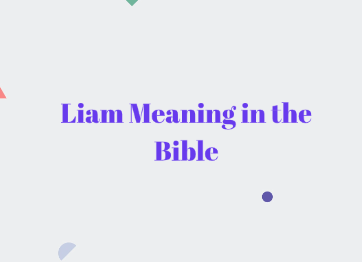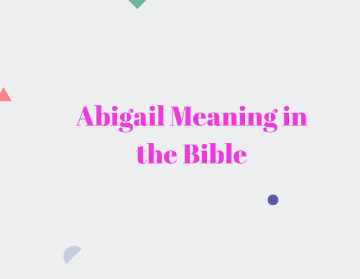Hungarian names are deeply rooted in the history, culture, and language of Hungary, a country with a rich and vibrant heritage. These names often carry meanings tied to virtues, nature, historical figures, and even ancient Magyar traditions. Whether you're of Hungarian descent or simply drawn to the beauty and uniqueness of Hungarian names, this article will provide a comprehensive guide to some of the most beautiful and meaningful Hungarian-origin baby boy and girl names.
The Rich Tradition of Hungarian Names
Hungarian names have a distinct charm, often reflecting the country's long history and cultural influences. Hungarian naming conventions traditionally place the family name first, followed by the given name, though in international contexts, this order is often reversed.
Hungarian names are often inspired by nature, virtues, and historical or legendary figures. They may also have Slavic, German, or Latin influences due to Hungary's history of interaction with neighboring regions. Many Hungarian names have meanings that convey strength, nobility, or beauty, making them a meaningful choice for a new baby.
Hungarian Origin Baby Boy Names
- Ádám - Of Hebrew origin, meaning "man" or "earth." It is the Hungarian form of Adam.
- András - Of Greek origin, meaning "manly" or "brave." The Hungarian form of Andrew.
- Attila - Of Gothic origin, meaning "father-like." A name associated with Attila the Hun.
- Balázs - Of Latin origin, meaning "stammerer" or "lisping." The Hungarian form of Blaise.
- Barnabás - Of Aramaic origin, meaning "son of consolation." The Hungarian form of Barnabas.
- Bence - Of Latin origin, meaning "blessed" or "well-spoken." The Hungarian form of Vincent.
- Benedek - Of Latin origin, meaning "blessed." The Hungarian form of Benedict.
- Csaba - Of Hungarian origin, meaning "shepherd" or "gift of God."
- Dávid - Of Hebrew origin, meaning "beloved." The Hungarian form of David.
- Dénes - Of Greek origin, meaning "follower of Dionysus." The Hungarian form of Dennis.
- Domonkos - Of Latin origin, meaning "belonging to the Lord." The Hungarian form of Dominic.
- Dániel - Of Hebrew origin, meaning "God is my judge." The Hungarian form of Daniel.
- Emil - Of Latin origin, meaning "rival" or "eager." The Hungarian form of Emil.
- Endre - Of Greek origin, meaning "manly" or "brave." The Hungarian form of Andrew.
- Ferenc - Of Latin origin, meaning "free man." The Hungarian form of Francis.
- Gábor - Of Hebrew origin, meaning "God is my strength." The Hungarian form of Gabriel.
- Géza - Of Hungarian origin, traditionally thought to mean "little prince" or "noble."
- György - Of Greek origin, meaning "farmer" or "earthworker." The Hungarian form of George.
- Gergely - Of Greek origin, meaning "watchful" or "alert." The Hungarian form of Gregory.
- Henrik - Of German origin, meaning "ruler of the home." The Hungarian form of Henry.
- Hunor - Of Hungarian origin, possibly meaning "leader of the Huns."
- Imre - Of Germanic origin, meaning "ruler" or "king." The Hungarian form of Emeric.
- István - Of Greek origin, meaning "crown" or "garland." The Hungarian form of Stephen.
- Iván - Of Hebrew origin, meaning "God is gracious." The Hungarian form of John.
- János - Of Hebrew origin, meaning "God is gracious." The Hungarian form of John.
- Károly - Of Germanic origin, meaning "free man." The Hungarian form of Charles.
- Kristóf - Of Greek origin, meaning "bearer of Christ." The Hungarian form of Christopher.
- László - Of Slavic origin, meaning "glorious ruler." The Hungarian form of Ladislaus.
- Levente - Of Hungarian origin, meaning "hero" or "knight."
- Lóránt - Of Latin origin, meaning "crowned with laurel." The Hungarian form of Laurence.
- Mátyás - Of Hebrew origin, meaning "gift of God." The Hungarian form of Matthias.
- Márk - Of Latin origin, meaning "warlike" or "dedicated to Mars." The Hungarian form of Mark.
- Mihály - Of Hebrew origin, meaning "Who is like God?" The Hungarian form of Michael.
- Miklós - Of Greek origin, meaning "victory of the people." The Hungarian form of Nicholas.
- Máté - Of Hebrew origin, meaning "gift of God." The Hungarian form of Matthew.
- Nándor - Of Germanic origin, meaning "bold protector." A traditional Hungarian name.
- Norbert - Of German origin, meaning "bright north" or "famous north."
- Olivér - Of Latin origin, meaning "olive tree." The Hungarian form of Oliver.
- Pál - Of Latin origin, meaning "small" or "humble." The Hungarian form of Paul.
- Péter - Of Greek origin, meaning "rock" or "stone." The Hungarian form of Peter.
- Róbert - Of Germanic origin, meaning "bright fame." The Hungarian form of Robert.
- Sándor - Of Greek origin, meaning "defender of men." The Hungarian form of Alexander.
- Szabolcs - Of Hungarian origin, meaning "silent" or "calm."
- Tamás - Of Aramaic origin, meaning "twin." The Hungarian form of Thomas.
- Tibor - Of Slavic origin, meaning "sacred place" or "he who honors God."
- Tihamér - Of Hungarian origin, traditionally meaning "sharp ruler."
- Vince - Of Latin origin, meaning "conquering" or "victorious." The Hungarian form of Vincent.
- Vilmos - Of Germanic origin, meaning "willful protector." The Hungarian form of William.
- Zoltán - Of Turkish origin, meaning "ruler" or "sultan."
- Zalán - Of Hungarian origin, believed to mean "stream" or "wave."
- Alfréd - Of Old English origin, meaning "elf counsel." The Hungarian form of Alfred.
- Arnold - Of Germanic origin, meaning "ruler of eagles."
- Ákos - Of Hungarian origin, meaning "white falcon."
- Béla - Of Slavic origin, meaning "white" or "pure."
- Bertalan - Of Aramaic origin, meaning "son of the furrows." The Hungarian form of Bartholomew.
- Botond - Of Hungarian origin, meaning "a strong man" or "warrior."
- Csanád - Of Hungarian origin, meaning "chief" or "ruler."
- Dorián - Of Greek origin, meaning "from Doris" or "of the Dorian tribe."
- Elemér - Of Germanic origin, meaning "noble and famous."
- Előd - Of Hungarian origin, meaning "ancestor" or "forefather."
- Erik - Of Norse origin, meaning "eternal ruler."
- Gyula - Of Hungarian origin, meaning "youthful" or "a title of nobility."
- Jenő - Of Hungarian origin, possibly meaning "well-born" or "noble."
- Kende - Of Hungarian origin, traditionally a title meaning "sacred ruler."
- Kornél - Of Latin origin, meaning "horn" or "strong." The Hungarian form of Cornelius.
- Lőrinc - Of Latin origin, meaning "from Laurentum" or "crowned with laurel."
- Miksa - Of Latin origin, meaning "the greatest." The Hungarian form of Maximilian.
- Márton - Of Latin origin, meaning "of Mars" or "warlike." The Hungarian form of Martin.
- Németh - Of Hungarian origin, meaning "German" or "foreigner."
- Ödön - Of Greek origin, meaning "well-born" or "noble."
- Oszkár - Of Old Norse origin, meaning "God's spear." The Hungarian form of Oscar.
- Patrik - Of Latin origin, meaning "nobleman" or "patrician." The Hungarian form of Patrick.
- Richárd - Of Germanic origin, meaning "strong ruler." The Hungarian form of Richard.
- Rudolf - Of Germanic origin, meaning "famous wolf."
- Szilárd - Of Hungarian origin, meaning "firm" or "solid."
- Tivadar - Of Greek origin, meaning "gift of God." The Hungarian form of Theodore.
- Tódor - Of Greek origin, meaning "gift of God." A variation of Tivadar.
- Vilhelm - Of Germanic origin, meaning "willful protector." The Hungarian form of Wilhelm.
- Zsigmond - Of Germanic origin, meaning "victorious protector." The Hungarian form of Sigmund.
- Zsombor - Of Hungarian origin, meaning "bison" or "a type of flower."
- Bálint - Of Latin origin, meaning "strong" or "healthy." The Hungarian form of Valentine.
- Barna - Of Hungarian origin, meaning "brown" or "bear." A diminutive of Barnabás.
- Domos - Of Latin origin, meaning "belonging to the Lord." A variation of Domonkos.
- Ernő - Of Germanic origin, meaning "serious" or "determined." The Hungarian form of Ernest.
- Gergő - Of Greek origin, meaning "watchful" or "alert." A diminutive of Gergely.
- József - Of Hebrew origin, meaning "God will add." The Hungarian form of Joseph.
- Karcsi - Of Germanic origin, meaning "free man." A diminutive of Károly.
- Kálmán - Of Turkish origin, meaning "dove" or "peaceful."
- Márkus - Of Latin origin, meaning "of Mars" or "warlike." A variation of Márk.
- Szilveszter - Of Latin origin, meaning "wooded" or "wild." The Hungarian form of Sylvester.
- Zénó - Of Greek origin, meaning "gift of Zeus." The Hungarian form of Zeno.
- Zsolt - Of Slavic origin, meaning "blessed" or "happy."
- Örs - Of Hungarian origin, meaning "bear" or "brave."
- Árpád - Of Hungarian origin, meaning "seed" or "grain." A name associated with the founder of Hungary.
- Vilja - Of Old Norse origin, meaning "will" or "desire." A variant of Wilhelm.
- Géza - Of Hungarian origin, traditionally meaning "little prince."
- Ajtony - Of Hungarian origin, meaning "lord" or "chief."
- Gyöngy - Of Hungarian origin, meaning "pearl."
- Zalán - Of Hungarian origin, meaning "stream" or "wave."
- Bátor - Of Hungarian origin, meaning "brave" or "courageous."
Hungarian Origin Baby Girl Names
- Adrienn - Of Latin origin, meaning "from Hadria." The Hungarian form of Adrienne.
- Aliz - Of Germanic origin, meaning "noble" or "of noble kind." The Hungarian form of Alice.
- Andrea - Of Greek origin, meaning "brave" or "manly." The Hungarian form of Andrea, used for females.
- Anett - Of Hebrew origin, meaning "grace" or "favor." The Hungarian form of Annette.
- Anna - Of Hebrew origin, meaning "grace" or "favor." A classic and widely used name.
- Anikó - Of Hebrew origin, meaning "favor" or "grace." A diminutive of Anna, common in Hungary.
- Ágnes - Of Greek origin, meaning "pure" or "holy." The Hungarian form of Agnes.
- Ágota - Of Greek origin, meaning "good" or "kind." The Hungarian form of Agatha.
- Beáta - Of Latin origin, meaning "blessed" or "happy." The Hungarian form of Beata.
- Bernadett - Of Germanic origin, meaning "brave as a bear." The Hungarian form of Bernadette.
- Bianka - Of Italian origin, meaning "white" or "pure." The Hungarian form of Bianca.
- Borbála - Of Greek origin, meaning "foreign" or "stranger." The Hungarian form of Barbara.
- Boglárka - Of Hungarian origin, meaning "buttercup," a type of flower.
- Csilla - Of Hungarian origin, meaning "star" or "sparkle."
- Dalma - Of Hungarian origin, meaning "noble" or "graceful."
- Dorottya - Of Greek origin, meaning "gift of God." The Hungarian form of Dorothy.
- Dóra - Of Greek origin, meaning "gift." A diminutive of Dorottya, the Hungarian form of Dora.
- Edit - Of Old English origin, meaning "prosperous in war." The Hungarian form of Edith.
- Edina - Of Latin origin, meaning "wealthy" or "happy." The Hungarian form of Edina.
- Enikő - Of Hungarian origin, meaning "woman" or "daughter." A name from Hungarian mythology.
- Emese - Of Hungarian origin, meaning "mother" or "nurturing." A name from Hungarian legends.
- Erika - Of Old Norse origin, meaning "eternal ruler." The Hungarian form of Erica.
- Erzsébet - Of Hebrew origin, meaning "God is my oath." The Hungarian form of Elizabeth.
- Eszter - Of Persian origin, meaning "star." The Hungarian form of Esther.
- Evelin - Of Hebrew origin, meaning "desired" or "wished for child." The Hungarian form of Evelyn.
- Gabriella - Of Hebrew origin, meaning "God is my strength." The Hungarian form of Gabriella.
- Georgina - Of Greek origin, meaning "farmer" or "earthworker." The Hungarian form of Georgina.
- Gizella - Of Germanic origin, meaning "pledge" or "hostage." The Hungarian form of Giselle.
- Hajnalka - Of Hungarian origin, meaning "dawn" or "morning light."
- Helga - Of Old Norse origin, meaning "holy" or "blessed."
- Henrietta - Of Germanic origin, meaning "ruler of the home." The Hungarian form of Henrietta.
- Ildikó - Of Hungarian origin, traditionally thought to mean "battle."
- Ilona - Of Greek origin, meaning "light" or "torch." The Hungarian form of Helen.
- Irén - Of Greek origin, meaning "peace." The Hungarian form of Irene.
- Ibolya - Of Hungarian origin, meaning "violet," a type of flower.
- Izabella - Of Hebrew origin, meaning "God is my oath." The Hungarian form of Isabella.
- Johanna - Of Hebrew origin, meaning "God is gracious." The Hungarian form of Joanna.
- Judit - Of Hebrew origin, meaning "woman from Judea." The Hungarian form of Judith.
- Julianna - Of Latin origin, meaning "youthful" or "downy." The Hungarian form of Juliana.
- Júlia - Of Latin origin, meaning "youthful" or "downy." The Hungarian form of Julia.
- Katalin - Of Greek origin, meaning "pure." The Hungarian form of Catherine.
- Kitti - Of Greek origin, meaning "pure." A diminutive of Katalin, used as Kitty in English.
- Kinga - Of Germanic origin, meaning "brave" or "warrior." A popular name in Hungary.
- Krisztina - Of Greek origin, meaning "follower of Christ." The Hungarian form of Christina.
- Lilla - Of Latin origin, meaning "lilac" or "lily." A diminutive of Lillian, used in Hungary.
- Lívia - Of Latin origin, meaning "olive tree." The Hungarian form of Livia.
- Liza - Of Hebrew origin, meaning "God is my oath." A diminutive of Erzsébet, used as Lisa in English.
- Luca - Of Latin origin, meaning "light." The Hungarian form of Lucy.
- Magdolna - Of Hebrew origin, meaning "of Magdala." The Hungarian form of Magdalene.
- Margit - Of Greek origin, meaning "pearl." The Hungarian form of Margaret.
- Mária - Of Hebrew origin, meaning "beloved" or "bitter." The Hungarian form of Mary.
- Mariann - Of Hebrew origin, meaning "beloved" or "bitter." A variation of Mária, similar to Marianne.
- Márta - Of Aramaic origin, meaning "lady" or "mistress." The Hungarian form of Martha.
- Melinda - Of Greek origin, possibly meaning "honey" or "sweet."
- Mónika - Of Latin origin, meaning "advisor" or "truth." The Hungarian form of Monica.
- Nóra - Of Greek origin, meaning "light" or "honor." A diminutive of Eleonóra, used as Nora in English.
- Orsolya - Of Latin origin, meaning "little bear." The Hungarian form of Ursula.
- Patrícia - Of Latin origin, meaning "noblewoman" or "patrician." The Hungarian form of Patricia.
- Piroska - Of Hungarian origin, meaning "little red one."
- Rebeka - Of Hebrew origin, meaning "to tie" or "bind." The Hungarian form of Rebecca.
- Rózsa - Of Latin origin, meaning "rose." The Hungarian word and name for the flower.
- Róza - Of Latin origin, meaning "rose." A diminutive or variation of Rózsa.
- Renáta - Of Latin origin, meaning "reborn." The Hungarian form of Renata.
- Réka - Of Hungarian origin, possibly meaning "river" or "clear."
- Rita - Of Latin origin, meaning "pearl." A diminutive of Margarita, used as Rita in English.
- Sarolta - Of Hungarian origin, meaning "noble lady" or "princess."
- Sára - Of Hebrew origin, meaning "princess." The Hungarian form of Sarah.
- Szilvia - Of Latin origin, meaning "from the forest." The Hungarian form of Sylvia.
- Szilvi - A diminutive of Szilvia, used in Hungary as Sylvia is used in English.
- Tímea - Of Hungarian origin, created by author Mór Jókai, possibly meaning "honor."
- Tünde - Of Hungarian origin, meaning "fairy" or "spirit."
- Valéria - Of Latin origin, meaning "strong" or "healthy." The Hungarian form of Valerie.
- Veronika - Of Greek origin, meaning "bringing victory." The Hungarian form of Veronica.
- Viktória - Of Latin origin, meaning "victory." The Hungarian form of Victoria.
- Zita - Of Italian origin, meaning "little girl" or "seeker." Popular in Hungary due to St. Zita.
- Zsófia - Of Greek origin, meaning "wisdom." The Hungarian form of Sophia.
- Zsuzsanna - Of Hebrew origin, meaning "lily." The Hungarian form of Susanna.
- Zóra - Of Slavic origin, meaning "dawn" or "morning."
- Annamária - Of Hebrew origin, combining Anna ("grace") and Mária ("beloved"). A Hungarian double name.
- Antónia - Of Latin origin, meaning "priceless" or "praiseworthy." The Hungarian form of Antonia.
- Csenge - Of Hungarian origin, meaning "chime" or "ring."
- Dorina - Of Greek origin, meaning "gift." A diminutive of Dorottya.
- Elizabet - Of Hebrew origin, meaning "God is my oath." A variation of Erzsébet, similar to Elizabeth.
- Fanni - Of Greek origin, meaning "crowned." A diminutive of Stefánia, used as Fanny in English.
- Franciska - Of Germanic origin, meaning "free" or "from France." The Hungarian form of Francesca.
- Flóra - Of Latin origin, meaning "flower." The Hungarian form of Flora.
- Gréta - Of Greek origin, meaning "pearl." A diminutive of Margit, similar to Greta.
- Gyöngyi - Of Hungarian origin, meaning "pearl."
- Hajna - Of Hungarian origin, meaning "morning" or "dawn."
- Karola - Of Germanic origin, meaning "free woman." The Hungarian form of Caroline.
- Klára - Of Latin origin, meaning "clear" or "bright." The Hungarian form of Clara.
- Kriszta - Of Greek origin, meaning "follower of Christ." A diminutive of Krisztina, used as Krista in English.
- Lujza - Of Germanic origin, meaning "famous warrior." The Hungarian form of Louisa.
- Emőke - Of Hungarian origin, meaning "soft" or "tender."
- Györgyi - Of Greek origin, meaning "farmer" or "earthworker." A diminutive of Georgina.
- Kincső - Of Hungarian origin, meaning "treasure."
- Lídia - Of Greek origin, meaning "from Lydia." The Hungarian form of Lydia.
- Nikolett - Of Greek origin, meaning "victory of the people." The Hungarian form of Nicolette.
- Olga - Of Old Norse origin, meaning "holy" or "blessed."
- Tilda - Of Germanic origin, meaning "mighty in battle." A diminutive of Matilda.
Embracing Hungarian Heritage Through Names
Choosing a Hungarian name for your baby is a beautiful way to honor the rich cultural heritage of Hungary. These names are not only unique and meaningful but also carry a deep connection to history, tradition, and values. Whether you are looking for a name that reflects strength, wisdom, beauty, or courage, Hungarian names offer a diverse range of options that can resonate with you and your family.
Conclusion
Hungarian origin baby names are steeped in history and meaning, offering parents a way to connect their children with a proud and ancient heritage. These names are more than just beautiful sounds; they carry stories, virtues, and a sense of identity that can be passed down through generations. Whether you choose a name for its historical significance, its meaning, or its connection to nature, a Hungarian name can provide a rich and meaningful start to your child's life.






